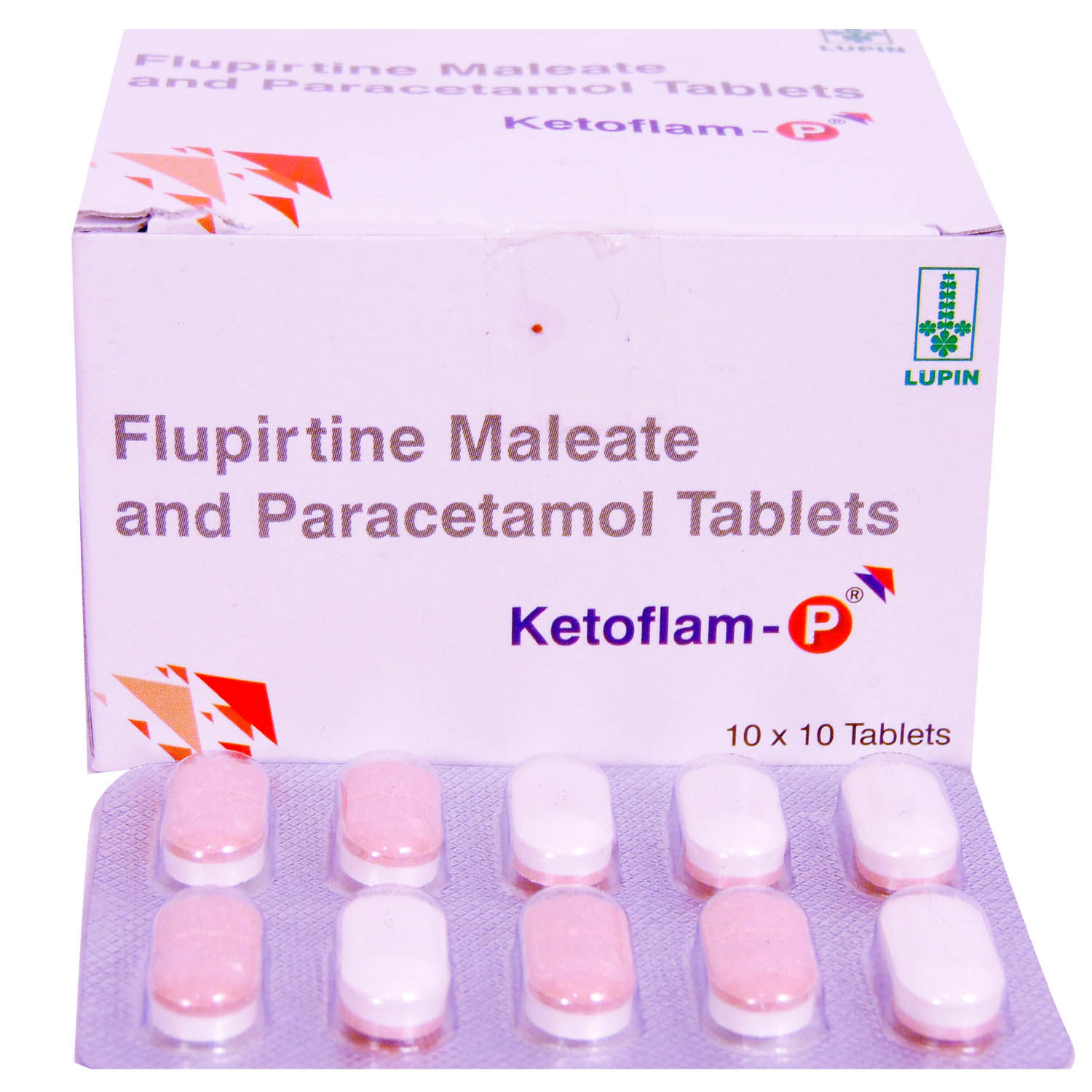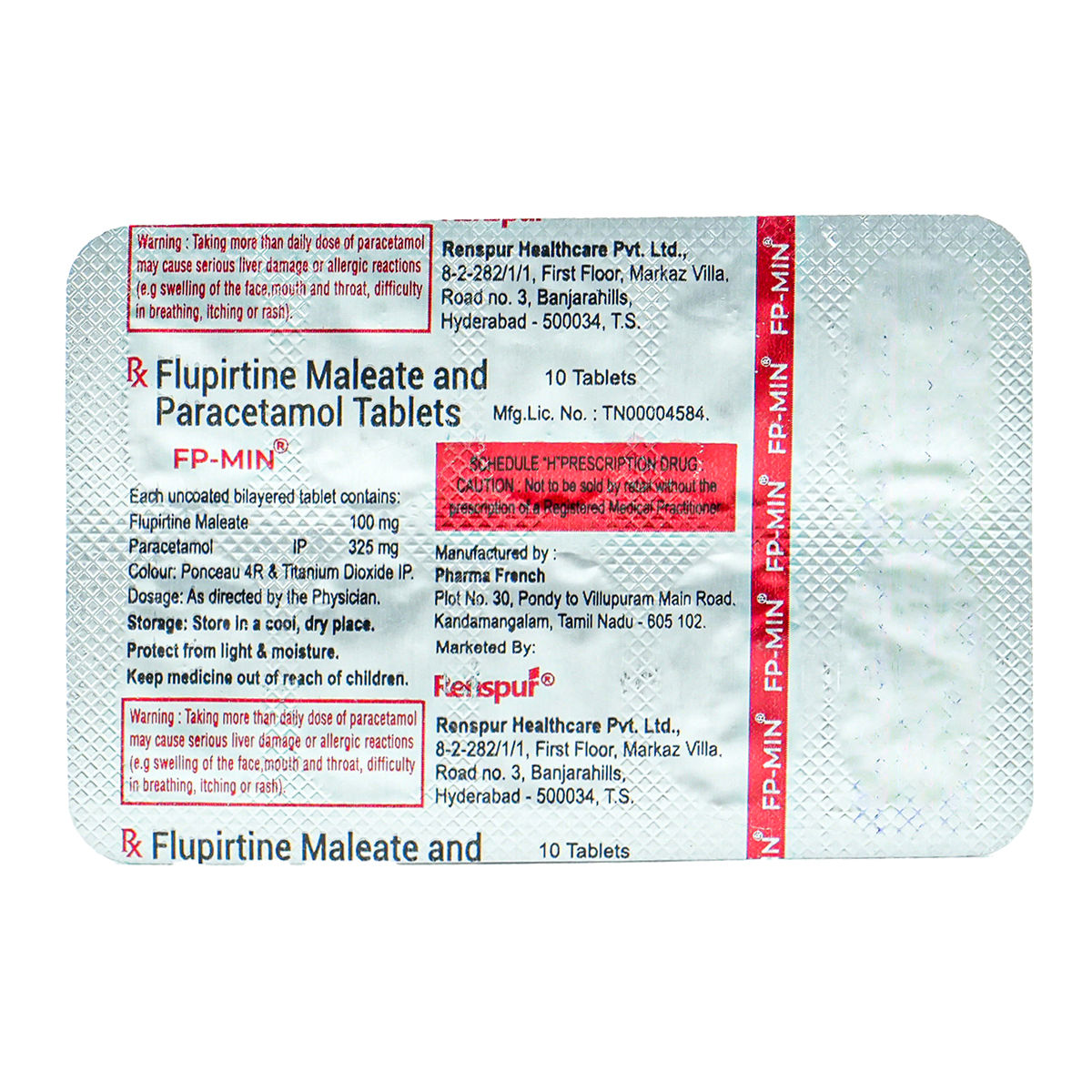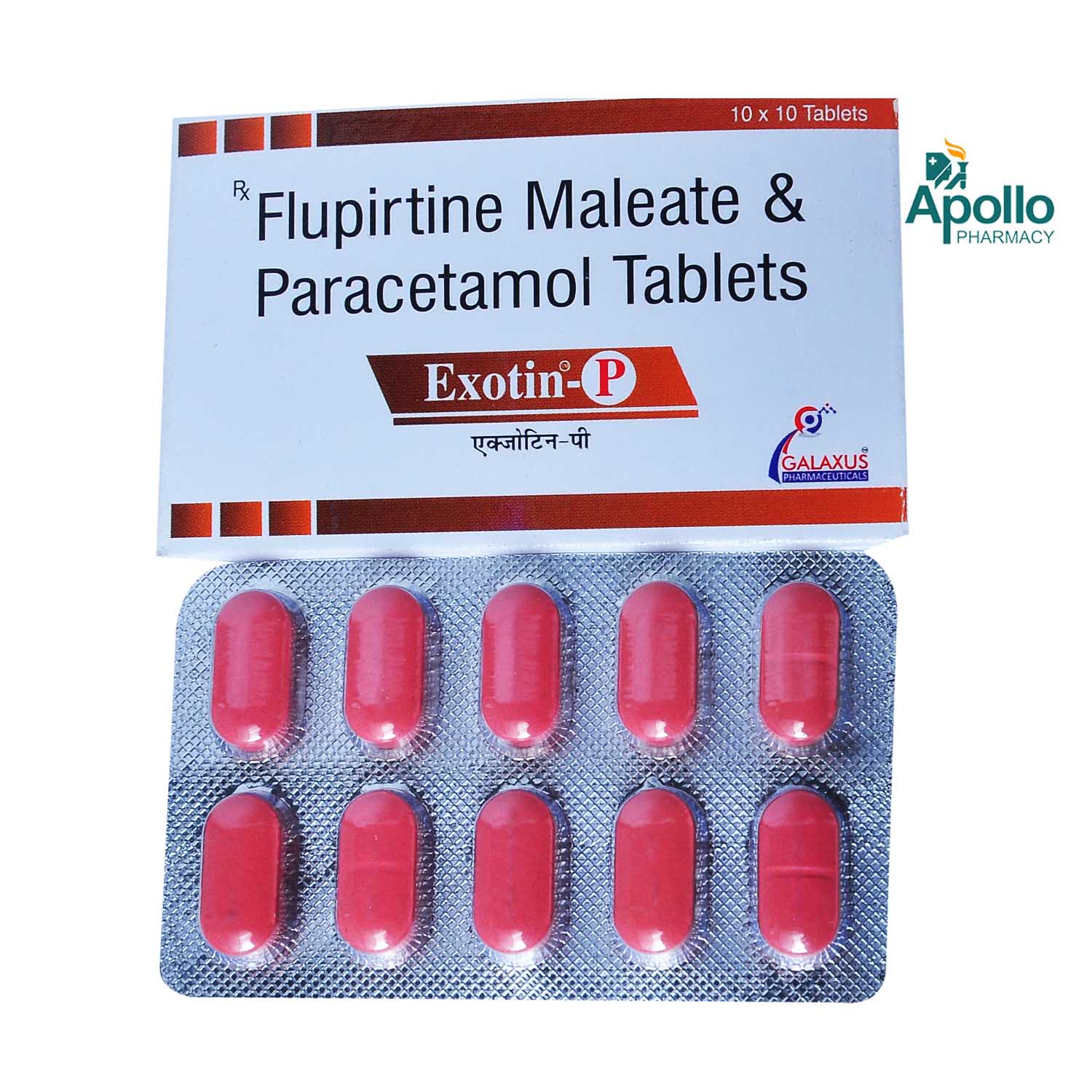Apyridine-P Tablet 10's
₹128.3*
MRP ₹142.5
10% off
₹121.12*
MRP ₹142.5
15% CB
₹21.38 cashback(15%)
Free Delivery
With Circle membership
(Inclusive of all Taxes)
This offer price is valid on orders above ₹800. Apply coupon PHARMA10/PHARMA18 (excluding restricted items)
Know Your Delivery Time
Provide Delivery Location



Available Offers
 Prescription drug
Prescription drugWhats That
 26 people bought
26 people bought 
Secure Payment

India's Most Trusted Pharmacy

Genuine Products
Composition :
Manufacturer/Marketer :
Consume Type :
Return Policy :
Expires on or after :
About Apyridine-P Tablet
Apyridine-P Tablet is a combination medication that belongs to the analgesic medication class. It is widely used in the treatment of acute and chronic pain, fever, headache, joint pains, dysmenorrhea (period pain), postoperative pain, toothache after dental extraction, and myalgia (muscle pain). Pain is a widely used term used to describe an unpleasant feeling or discomfort. It ranges from mild to severe. The severity of the pain depends on the underlying condition. Inflammation is the immune system's natural response to injury or infection.
Apyridine-P Tablet contains flupirtine and paracetamol. Flupirtine is an analgesic (non-opioid analgesic) which works by blocking the transmission of pain signals to the brain to lower pain perception. Paracetamol is an analgesic (pain reliever) and an antipyretic (fever reducer), which works by blocking the release of certain chemical messengers that cause fever and pain. Thus Apyridine-P Tablet alleviates pain and other associate conditions.
Use Apyridine-P Tablet as directed by the physician only. The dose and duration of the medication depend on your condition and its severity. The common side effects of Apyridine-P Tablet include nausea, vomiting, wind, abdominal discomfort, diarrhoea, constipation, heartburn, drowsiness, dizziness, headache, and depression. Most of these side effects of Apyridine-P Tablet are temporary, do not require medical attention, and gradually resolve over time. However, if the side effects are persistent, reach out to your doctor.
Before taking Apyridine-P Tablet , inform your doctor if you are allergic to flupirtine, paracetamol, or other ingredients. Besides, inform your doctor if you are pregnant, breastfeeding, or have any pre-existing conditions such as liver diseases such as hepatic encephalopathy (loss of brain function due to liver damage), chronic alcoholism, or cholestasis (reduced bile flow), renal impairment, myasthenia gravis (chronic neuromuscular disease), or heart diseases. If Apyridine-P Tablet is given in patients with liver diseases, liver function should be monitored closely. Apyridine-P Tablet causes drowsiness and dizziness, so drive only if you are alert. Apyridine-P Tablet is not recommended for children younger than six years old.
Uses of Apyridine-P Tablet
Directions for Use
Medicinal Benefits
Apyridine-P Tablet contains flupirtine (non-opioid analgesic) and paracetamol (analgesic and antipyretic). Flupirtine works by blocking the glutamate receptors that are involved in producing pain signals. It also has muscle relaxant properties. Paracetamol acts as an analgesic and antipyretic by inhibiting the release of prostaglandins (chemical mediators) that cause pain, inflammation, and fever. Altogether provide relief from pain and associated symptoms.
How Apyridine-P Tablet Works
Storage
Side Effects of Apyridine-P Tablet
- Nausea
- Vomiting
- Colic/wind
- Gastric
- Abdominal discomfort
- Diarrhea
- Constipation
- Heartburn
- Drowsiness
- Dizziness
- Headache
- Depression
What if I have taken an overdose of Apyridine-P Tablet
Drug Warnings
Avoid using Apyridine-P Tablet if you are allergic to analgesics or painkillers. People with liver diseases, kidney diseases, and elderly people above 65 years of age may require dose adjustments. If Apyridine-P Tablet is given to patients with liver impairment, liver function should be closely monitored. It is advised to discontinue use if you notice any signs of liver damage such as nausea, vomiting, yellowed skin and eyes (jaundice), abdominal pain, loss of appetite, itchy skin, and dark-coloured urine, etc.
Drug-Drug Interactions
Drug-Drug Interactions
Login/Sign Up
Co-administration of Mipomersen with Apyridine-P Tablet 10's may increase the risk or severity of liver injury.
How to manage the interaction:
There may be a possibility of interaction between Apyridine-P Tablet 10's and Mipomersen, but it can be taken if prescribed by a doctor. Do not stop using any medications without talking to a doctor.
Co-administration of Apyridine-P Tablet 10's and Valdecoxib may increase the risk or severity of adverse effects.
How to manage the interaction:
Although there is a possible interaction between Apyridine-P Tablet 10's and Valdecoxib, you can take these medicines together if prescribed by a doctor. However, if the side effects worsen, please consult a doctor.
Co-administration of Apyridine-P Tablet 10's may decrease the excretion rate of Oxazepam which could result in a higher serum level.
How to manage the interaction:
Although there is a possible interaction between Oxazepam and Apyridine-P Tablet 10's, you can take these medicines together if prescribed by a doctor. Do not stop using any medications without a doctor's advice.
Co-administration of Lomitapide and Apyridine-P Tablet 10's may increase the risk of severity of liver injury.
How to manage the interaction:
Although there is a possible interaction between Apyridine-P Tablet 10's and Lomitapide, you can take these medicines together if prescribed by a doctor. Do not stop using any medications without a doctor's advice.
Co-administration of Apyridine-P Tablet 10's and Ketoconazole may increase the risk of liver injury.
How to manage the interaction:
Although there is a possible interaction between Apyridine-P Tablet 10's and Ketoconazole, you can take these medicines together if prescribed by a doctor. However, if you have joint pain or swelling, fever, chills, unusual bleeding or bruising, skin rash, itching, over-tiredness, nausea, vomiting, loss of appetite, stomach pain, dark-colored urine, light-colored stools, and/or yellowing of the skin or eyes, contact a doctor immediately as these may be signs and symptoms of liver damage. Do not discontinue the medication without consulting a doctor.
Co-administration of Teriflunomide with Apyridine-P Tablet 10's may increase the risk or severity of Liver problems.
How to manage the interaction:
Taking Apyridine-P Tablet 10's with Teriflunomide together can possibly result in an interaction, but it can be taken if a doctor has advised it. Do not discontinue any medications without consulting a doctor.
Co-administration of ketamine and Apyridine-P Tablet 10's may decrease the effectiveness of Ketamine which could result in a higher blood level.
How to manage the interaction:
Although taking Ketamine and Apyridine-P Tablet 10's together can evidently cause an interaction, it can be taken if a doctor has suggested it. If you're feeling very sleepy or having trouble breathing, it's important to contact your doctor right away. Do not stop using any medications without a doctor's advice.
Co-administration of Apyridine-P Tablet 10's and Leflunomide may increase the risk of liver problems.
How to manage the interaction:
Although there is a possible interaction between Apyridine-P Tablet 10's and Leflunomide, they can be taken together if prescribed by a doctor. However, if you experience fever, chills, joint pain or swelling, unusual bleeding or bruising, skin rash, itching, less desire to eat, fatigue, nausea, vomiting, abdominal pain, or yellowing of the skin or eyes, contact a doctor immediately. Do not discontinue any medications without consulting a doctor.
Drug-Food Interactions
Drug-Food Interactions
Login/Sign Up
Diet & Lifestyle Advise
- Do not take alcohol.
- Include more glucosamine, chondroitin sulphate, vitamin D, and calcium-enriched supplements. Besides this, turmeric and fish oils can help reduce inflammation in the tissue.
- Please do not go for heavy exercise as it may increase your joint pain in arthritis. Instead, you can do stretching, low impact aerobic exercises like walking on a treadmill, bike riding and swimming. You can also strengthen your muscles by lifting light weights.
- In the chronic condition of arthritis or joint pain, try to include fish like salmon, trout, tuna, and sardines. These fishes are enriched with omega-3 fatty acids that minimum level of chemical called cytokines, which ramp up inflammation.
- Your sitting posture is important, especially when you have pain and inflammation. Try to sit as little as possible and only for a short time. Long-term immobility is harmful in conditions like arthritis. Use back support like a rolled-up towel to minimise pain at the back of your spine curve. Keep your knees and hips at a right angle. Besides this, you can also use a footrest if required.
Habit Forming
Therapeutic Class
Apyridine-P Tablet Substitute

Ketoflam P Tablet 10's
₹18.32per tabletVasfree-P Tablet 10's
₹14.85per tabletFlupirin-P Tablet 10's
by AYUR
₹16.20per tabletFlugesic P Tablet 10's
₹18.32per tabletPirineu P Tablet 10's
₹14.40per tablet
Product Substitutes
Alcohol
Unsafe
Consuming alcohol with Apyridine-P Tablet is not advisable as it may cause unpleasant side effects, or you may become more sensitive to the effects of alcohol.
Pregnancy
Caution
Apyridine-P Tablet is not recommended during pregnancy. However, your doctor may prescribe it for you during pregnancy if he/she feels the benefit outweighs the risk.
Breast Feeding
Unsafe
According to the studies available to date, a small percentage of flupirtine maleate passes into breast milk. Therefore, flupirtine maleate must not be administered during lactation unless necessary.
Driving
Unsafe
Avoid driving or operating heavy machinery after taking Apyridine-P Tablet , as it may cause dizziness.
Liver
Unsafe
Apyridine-P Tablet can cause liver toxicity. So, it should be avoided in patients with liver diseases. However, dose adjustments and close monitoring are necessary if it is used in patients with liver diseases.
Kidney
Caution
In patients with kidney problems, dose adjustments of Apyridine-P Tablet are required. Therefore, use Apyridine-P Tablet only when prescribed by a doctor.
Children
Caution
It is recommended to consult a doctor before using Apyridine-P Tablet in children below six years.
FAQs
Country of origin
Manufacturer/Marketer address
Disclaimer
Author Details
We provide you with authentic, trustworthy and relevant information
Reference
- https://www.ncbi.nlm.nih.gov/pmc/articles/PMC3339720/
- https://www.ncbi.nlm.nih.gov/pmc/articles/PMC3557425/#:~:text=Adverse%20events%20commonly%20reported%20were,%2C%20depression%2C%20disorientation%20and%20hallucinations.
- https://www.medicines.org.uk/emc/files/pil.5916.pdfhttp://mri.cts-mrp.eu/download/DE_H_3430_001_FinalSPC_2of2.pdf
- https://www.ema.europa.eu/en/news/restrictions-use-flupirtine-containing-medicines-cmdh-endorses-prac-recommendation#:~:text=Flupirtine%20is%20a%20non%2Dopioid,following%20orthopaedic%20surgery%20or%20injuries.





















